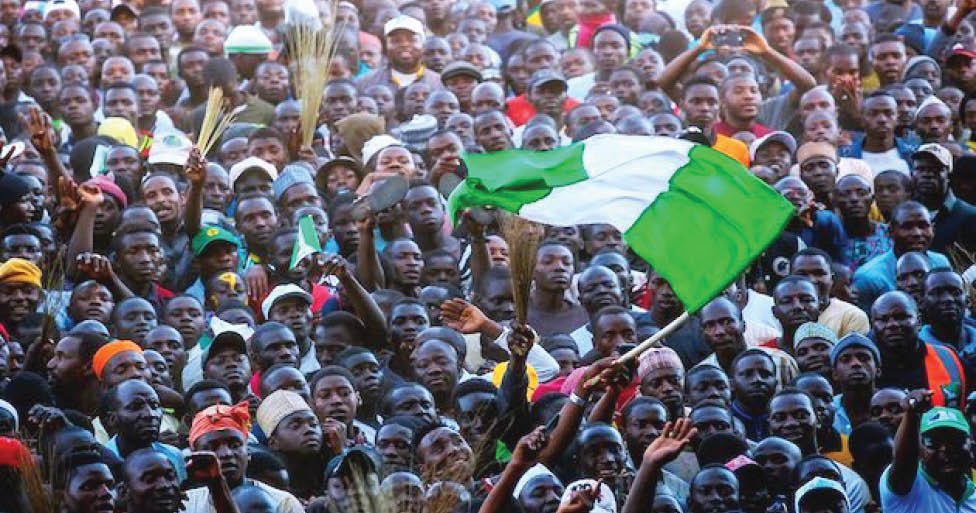By Huzaifa Jega
Some say that even Jesus Christ himself would be a failure as a Nigerian ruler. Given the Nigerian political context, this is to a significant extent because Jesus Christ will and must by default belong to a section of the Nigerian society, and this society happens to be so perversely fractious that the idea of a national consciousness is a contrived mirage, compromising the political firmament upon which everything else must rest. Apparently, many are so sure that the type of adroit statecraft needed to negotiate these fissures is beyond even a flawlessly divine ruler.
No opinion poll has to be conducted, Christ’s ratings among Nigerians are so absolute, universally unimpeachable. This is where the nexus between multiculturalism and interculturalism is so important, presupposing the imperative of a sociocultural renaissance to Nigerian nationhood.
- Buhari salutes Prof. Mabogunje at 90
- Kogi to Nigerians: Ask EFCC in whose custody it found its ‘missing’ money
The socio-culturally fluid, politically dynamic, and highly interconnected global environment we currently live in has narrowed the temporal–spatial distance within and between nation states, communities and individuals. This new hyper-connectivity, created by the unprecedented technological advances of the 21st Century, has increased and diversified the movement of people, ideas, and networks locally, nationally, internationally, transnationally and, in some cases, trans-locally too. Yet this increased mobility and inter-connectedness have, amongst various positives, also coincided with increased levels of regional conflicts, xenophobic episodes, and various other forms of social strife, some of which frame Muslims as the central post-independence group associated with challenges to national security and social cohesion.
These three trends – increased mobility coinciding with more salient social cohesion and security concerns, resulting in what we might call sociological super-diversity and political anti-multiculturalism – have led to a pro-diversity line of critique of multiculturalism and an alternative policy approach referred to as interculturalism. Arising in the policy field, this critique and alternative approach has been developed within academia but perhaps in isolation from contemporary Nigerian political currents that have pursued more explicitly an agenda that prioritises the individual at the expense of ongoing group oppression and structural inequalities. We argue that the relationship between multiculturalism and interculturalism, while quite intense in Nigeria, need not be, and is not, universal.
Not long ago, multiculturalism was regarded as the positive way to accept and institutionalise ethnic diversity. It was not necessarily universally endorsed but it was regarded as the future. From the late 1990s, and especially after the terrorist attacks of 9/11 and the emergence of terrorist groups like Boko Haram who profess Islam and terrorise in the name of Islam; and then the chronic epidemic of Fulani “jihadism”, multiculturalism began to be loudly criticised, especially in the South where sectional ideologues are screaming bloody murder over the “Islamization” agenda of the Northern establishment which supposedly also has firm control over the county’s political levers. Some of the criticism has been intellectual but the most prominent has been political. Some of the latter wants to stop talking about “difference”, but one notable policy-oriented critique offers an alternative way of thinking about and governing diversity.
In context, interculturalism, in fact, has three different politico-geographically specific meanings. In each case, the meaning of this concept is shaped by its character as a critique and possibly an alternative to the local understanding of multiculturalism. The oldest of the three is perhaps from the North, a branch of Islamic exceptionalism and Muslim nationalism, it emerged as a reaction to the academic edge the other regions had over it pre-independence, and probably even now. There is also the deductive “interculturalism” of the South East or Igbo land, which seems to reject state multiculturalism as a feature of colonialism, inter alia. The most prominent and influential is the one that originates from pre-independent political dynamics between the three regions and the political leaders that represent these regions.
It is this iteration that is alluded to here, though it is fair to say that there has been some interaction between this concept and its pre-independece counterpart, especially in academia. Yet, while Southern Interculturalism in many ways originated with political intellectuals and academics, European interculturalism originated with NGOs, policy-practitioners and policymakers and was much more practical from the start. However, in recent years a number of scholars have attempted to give European interculturalism, both in terms of its critique of multiculturalism and at the level of its own principles, an intellectual form. This has led to at least three sets of direct multicultural–intercultural engagements and comparative evaluations.
The relationship between multiculturalism and its critics, in Southern Nigeria as well as in Western Europe, has gone through three phases. Phase one began with a general dissatisfaction with multiculturalism from many political and intellectual sources. Some of this came from the right, some from the left, (when there was a left and a right in the Nigerian political landscape) some from critical theory scholars, and some from political theory scholars. Starting after return of democratic rule in Nigeria in the late 1990s, it accelerated after 9/11 on the global scene, when so much of the debate about diversity came to focus on Muslims. In phase one, interculturalism emerged both as a critique of multiculturalism and as a pro-diversity policy perspective.
Phase two roughly began about the end of the 2000s after the emergence of Boko Haram and when interculturalist scholars, mainly sociologists, though also scholars from cultural studies, policy studies, migration studies and geography, emerged in significant numbers. It is not enough to just think of those who self-define as interculturalists, but also those who invoke related concepts and vocabularies around the cosmopolitan society, conviviality, super-diversity and everyday multiculturalism. These new discourses about diversity have played a similar, albeit not identical, role to those of the self-identified interculturalist proponents. A feature of these intellectual positions, most pronounced in interculturalism, is an insistence that the nature of cultural diversity in urban centers has changed in the new millennium and, as a consequence, the flaws of multiculturalism are more evident than ever before.
With respect to intercultural themes, there is usually a very brief prefatory critique of normative-theoretical multiculturalism and, in the main, research within this rubric is not primarily theoretical but consists of empirical, often local or policy-oriented analysis.
Jega, a management consultant, lives in Abuja



